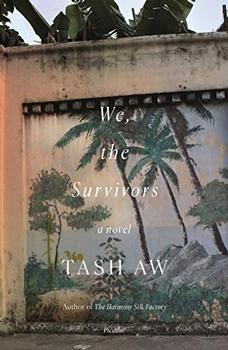Summary | Excerpt | Reading Guide | Reviews | Read-Alikes | Genres & Themes | Author Bio

An English boy born in early-twentieth-century Shanghai, is orphaned at age nine when his mother and father both vanish under suspicious circumstances. Sent to live in England, he grows up to become a renowned detective and, 20 years later, returns to Shanghai, where the Sino-Japanese War is raging.
The maze of human memory--the ways in which we accommodate and alter it, deceive and deliver ourselves with it--is territory that Kazuo Ishiguro has made his own. In his previous novels, he has explored this inner world and its manifestations in the lives of his characters with rare inventiveness and subtlety, shrewd humor and insight. In When We Were Orphans, his first novel in five years, he returns to this terrain in a brilliantly realized story that illuminates the power of one's past to determine the present.
Christopher Banks, an English boy born in early-twentieth-century Shanghai, is orphaned at age nine when his mother and father both vanish under suspicious circumstances. Sent to live in England, he grows up to become a renowned detective and, more than twenty years later, returns to Shanghai, where the Sino-Japanese War is raging, to solve the mystery of the disappearances.
The story is straightforward. Its telling is remarkable. Christopher's voice is controlled, detailed, and detached, its precision unsurprising in someone who has devoted his life to the examination of details and the rigors of objective thought. But within the layers of his narrative is slowly revealed what he can't, or won't, see: that his memory, despite what he wants to believe, is not unaffected by his childhood tragedies; that his powers of perception, the heralded clarity of his vision, can be blinding as well as enlightening; and that the simplest desires--a child's for his parents, a man's for understanding--may give rise to the most complicated truths.
A masterful combination of narrative control and soaring imagination, When We Were Orphans is Kazuo Ishiguro at his best.

If you liked When We Were Orphans, try these:

by John Shen Yen Nee, S.J. Rozan
Published 2025
Judge Dee and Lao She must use all their powers of deduction—and kung fu skills—to take down a sinister conspiracy between Imperial Russia, Japan, and China in a rollicking new mystery set in 1920s London.
The follow-up to The Murder of Mr. Ma, this historical adventure-mystery is perfect for fans of Laurie R. King and the Guy ...

by Tash Aw
Published 2020
From the author of The Harmony Silk Factory and Five Star Billionaire, a compelling depiction of a man's act of violence, set against the backdrop of Asia in flux.
I find that a great part of the information I have was acquired by looking something up and finding something else ...
Click Here to find out who said this, as well as discovering other famous literary quotes!